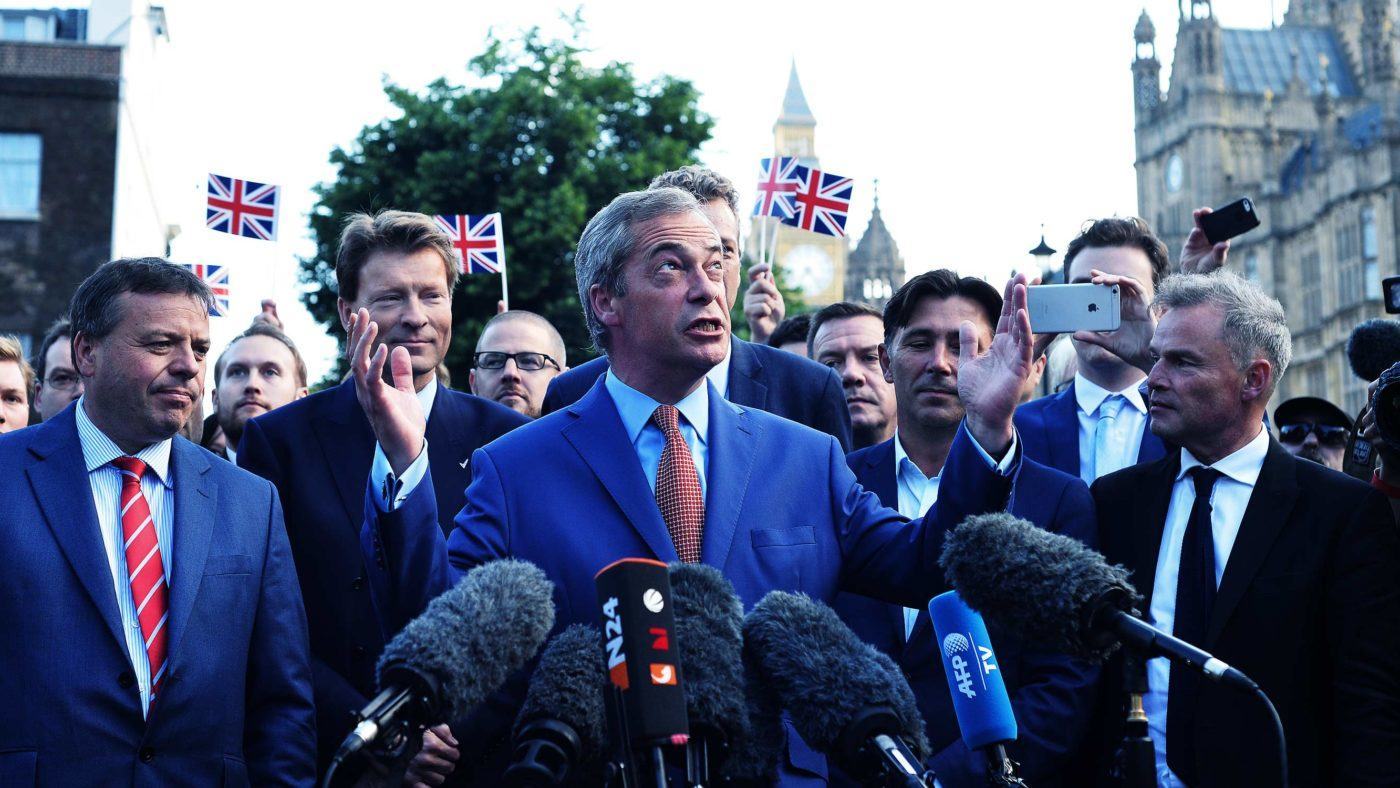It was at about 3am that the Remain campaigners started feeling serious chills down their spines. From then on, Leave took a lead of about 400,000 and maintained it throughout. Meanwhile, the pound had been plummeting at a rhythm unprecedented since the financial crisis: suddenly, the predictions of “project fear” seemed, objectively, more real than ever before.
All throughout the night, live coverage featured bewildered MPs and pundits, trying to accept that, once again, polls had been wrong, and that the country had definitively voted to head out of the European Union. Wildly varied reactions ensued: to cite just one, Nigel Farage conceded defeat, declared victory, conceded again, and finally claimed, triumphantly, that he “dared to dream of an independent United Kingdom”.
From commentators: I heard and read that the results revealed “a deeply divided country” – or variations thereof – at least five times during the night. Though there is clearly some truth in the ‘deeply divided’ part, the ‘revelation’ is in fact not big news at all. As The Economist reported at about 3am, breaking down the votes by demographics, income groups and geographical area confirmed much of the stereotypes that have long dominated the British political discourse: the young, urban, southern (and Scottish) overwhelmingly voted in. Religious differences also made an impact – as the results in Northern Ireland clearly showed.
The declaration of a few London boroughs at about 2.30am brought some short-lived hope to the Remain camp, yet that didn’t last too long, as results from North England and Wales kept coming in. Early in the night, Tim Montgomerie had already pointed out a trend that would have played an incredibly important role as the results were declared: local areas voting Leave had a higher turnout than those voting Remain. Leave kept winning more than expected, Remain kept winning less than expected – and by 4am, the blame game was in full swing.
Labour MPs blamed Osborne’s austerity and frustration with the government; the Tories accused Jeremy Corbyn of not having campaigned forcefully enough. Everyone attacked the SNP for the low turnout. Meanwhile, the Leave campaign was celebrating what was considered a victory for democracy, sovereignty and freedom.
There were quite a few surprises during the night. Sheffield, Birmingham and other urban areas that were predicted to vote IN, even by a narrow margin, didn’t. But arguably, Wales revealed itself as the real dark horse, closing with Leave 100,000 votes ahead.
Long before all the local authorities declared in England, commentators had been speculating about the future of Cameron and the current government. It is safe to say that the next few days will see important decisions being made by the Cabinet concerning future negotiations and responsibilities. The verdict on Cameron’s faith, however, is uncertain: supporters of the Leave campaign insisted he will not have to resign.
Regardless of what the future brings – to cite another much-too-abused refrain of the night – whoever will claim the leadership will have to deal with the consequences of a poisonous campaign that has torn the nation apart, and of the economic instability that the vote has brought about. Given the current heavy monetary constraints, it will be interesting to see what the Bank of England engineers can do to lift up a pound that hasn’t seen such a sharp fall since 2008.
Remain might have lost, yet tonight they have earned a staunch supporter, a woman who has brought hope to the IN camp and comic relief to the entire nation: Lindsay Lohan, who, for a reason unknown to common mortals, decided to live-tweet the referendum, and quickly became the brightest star of the Twitter universe. Maybe David Cameron should have thought about hiring her some months ago.


